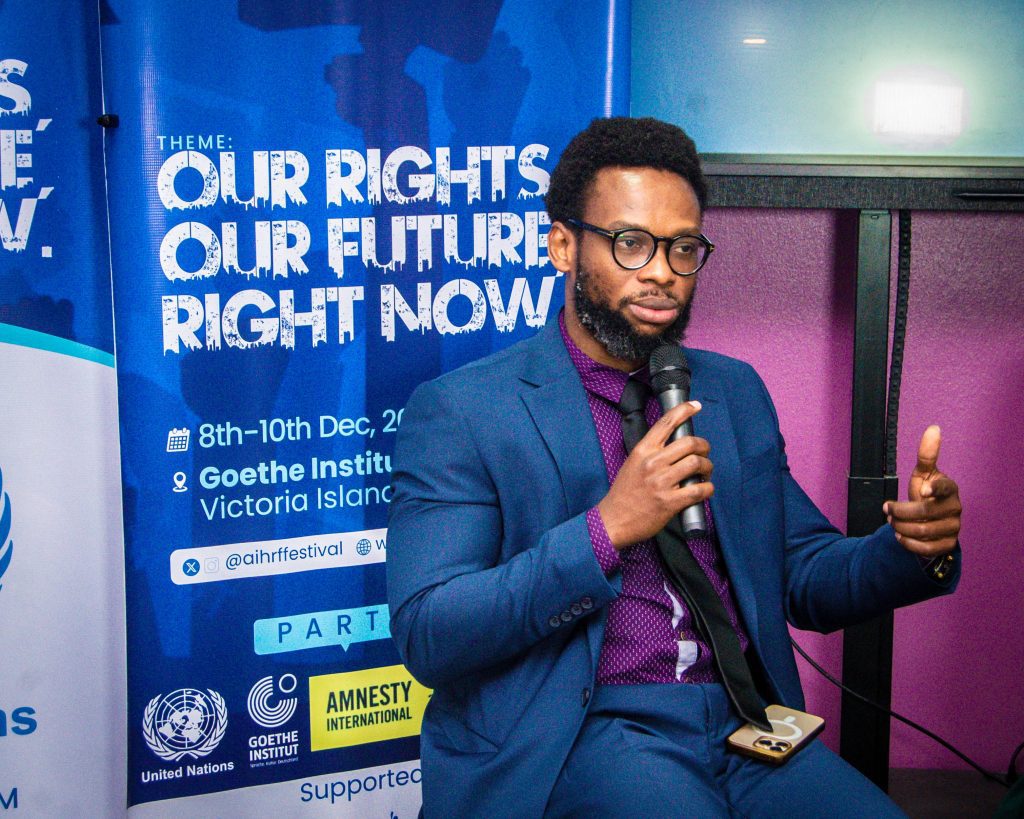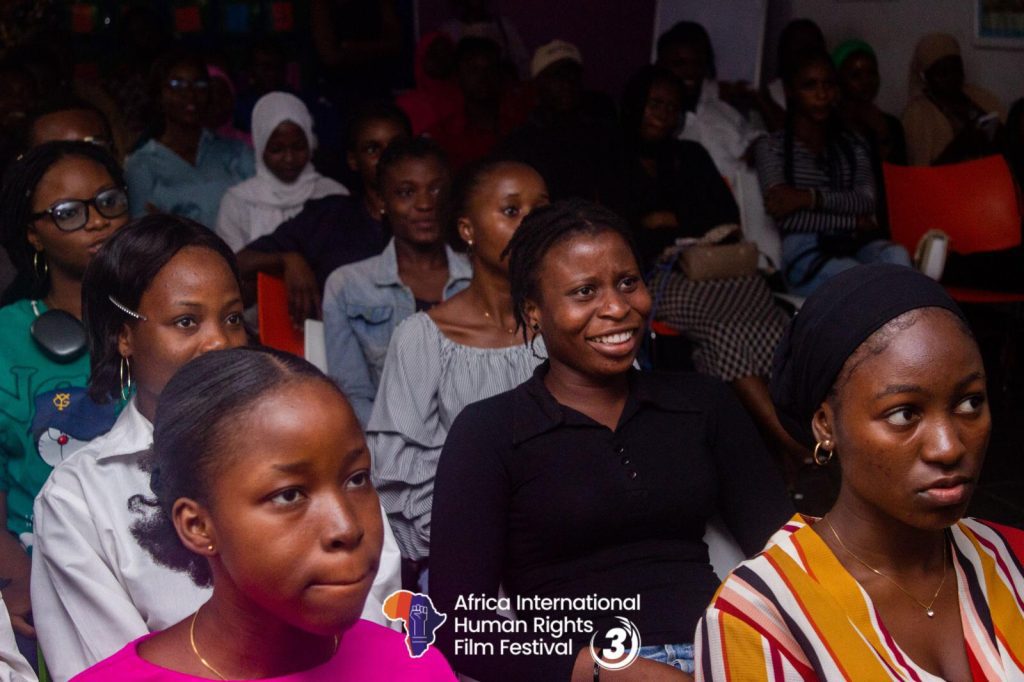The Africa International Human Rights Film Festival, held from December 8 to 10, 2024, brought together filmmakers, journalists, and human rights advocates to promote social justice and human rights.
The event, a third edition which has become a staple for addressing social injustices, featured a series of powerful films and documentaries centered around human rights issues, discrimination, and social inequalities.
Key figures in media and human rights discussed the role of storytelling in shedding light on marginalized communities.

Fisayo Soyombo, founder of the Foundation for Investigative Journalism (FIJ), highlighted the increasing militarization of attacks on journalists, especially in Nigeria, and emphasized the need for more protection for journalists who face these threats.
Speaking on “Media Resilience in Africa”, Soyombo urged journalists to use evidence-based reports to counter attacks from government agencies and non-state actors, noting that one of the roles of the media is resisting state-sponsored oppression.
He recalled incidents when his investigative team was targeted for exposing corruption, stating that it is crucial to recirculate such stories to ensure that the public remains informed.
Soyombo emphasized that media organizations should use attacks against them as an opportunity to highlight the stories being targeted.
“Whenever you pick one of our guys or try to strangulate us, we draw attention back to the story that you are offended by.
“When Joseph Egbunike came after us, a lot of people had not read the story. We recirculated the story and lots of people became aware,” Soyombo recounted. This, he argued, was an effective way to fight back against attempts to silence the press.
Damilola Aleje, a producer and panelis at the festival, emphasized the importance of fair representation, highlighting the need for more nuanced narratives in media.
She also emphasized the incompleteness often seen in stories related to gender diversity is a product of both conscious and unconscious bias.
“No one should ever feel discriminated against or stereotyped,” she added.
Aleje elaborated further on how issues related to gender diversity are often either overlooked or misrepresented. “The incompleteness may be done consciously or unconsciously,” she noted.

Vicky Patterson, a filmmaker, shared her perspective on the power of women telling their own stories.
She highlighted a documentary about a female truck driver who navigated the challenges of pregnancy and menstruation while working in an industry dominated by men.
“No matter how a man tries, he would never be able to project the details correctly. This is one of the many issues we are talking about,” she explained.
Patterson further pointed out that women’s voices are essential in ensuring that their stories are told authentically and accurately.
Patterson emphasized that inadequate funding opportunities continue to stifle important work in social justice, leaving many stories untold.
“A major challenge, for me, is access to funding. It is never given on a pedestal,” she shared, calling for more equitable support for women filmmakers.
The event also featured remarks from Mr. Femi Odugbemi, former President of the Independent Television Producers Association of Nigeria (ITPAN), who stressed the power of filmmaking in driving social change. “Filmmaking has the exclusive power to drive social change in a way not ever imagined,” he said. He encouraged filmmakers to launch mentoring programs to inspire young graduates and storytellers to enter the industry and use their work to advocate for change.
Odugbemi also discussed the unique power of storytelling to appeal to a wide audience. “This is because of its powers of appeal and relatability,” he noted, asserting that film and media are potent tools for sparking societal transformation.
Kehinde Adegboyega, Executive Director of the Human Rights Journalists Network (HRJN) and convener of the festival, reflected on the importance of the event in providing a platform for discussing human rights abuses worldwide.
Adegboyega reiterated that the festival serves as a reminder of the commitment to elevate the voices of marginalized people who endure oppression.
He called on media outlets to amplify stories of human rights violations, particularly those perpetrated by powerful state actors.
“The oppressor has a lot of funds to silence the work we do, and it is always overwhelming,” he said, referring to the challenges faced by journalists who report on these abuses.
“The manner of attacks against journalists in the country is more militaristic than democratic,” he said citing examples of surveillance, forced disappearances, and abductions becoming more common. He described these actions as a clear violation of press freedom and urged journalists to be vigilant and resilient in their work.
“The people that are attacking journalists have enough funds to mobilize the police, to get journalists wherever they are,” he added
He encouraged journalists to remain persistent and to continue bringing attention to these issues, no matter the risks involved.
He also highlighted the inconsistency of state responses to crimes committed against citizens, particularly when those citizens are journalists or human rights defenders.

